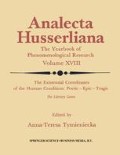Abstract
The diary as a literary form has, in recent times, enjoyed an increased measure of popularity among writers. In this paper, we shall not deal, however, with works of fiction which have taken on the form of a diary but with genuine diaries, i.e. the periodically recorded testimony of autobiographical experiences, diaries thus, which are (in spite of certain fictious inserts) not “invented” but can be regarded as documents of real life. Yet, at the same time, these diaries are written as literary works, they are the product of artistic creation, they have been shaped into an esthetic “Gestalt” without thereby losing their biographical authenticity. That means of course that they were all written for publication.
Access this chapter
Tax calculation will be finalised at checkout
Purchases are for personal use only
Preview
Unable to display preview. Download preview PDF.
Notes
Cf. Cecile Cazort Zorach, ‘Two Faces of Erin: The Dual Journey in Heinrich Bö11’s Irisches Tagebuch’, GR 53 (1978):128. Zorach notes at this point the absence of firstperson expressions. Her paper does not deal with the theme of historicity in this work.
Heinrich Böll, Irisches Tagebuch, in Werke, vol. 3, Romane und Erzählungen, ed. Bernd Balzer (Cologne: Kiepenheuer & Witsch, 1977), p. 20.
Ibid., p. 31.
Ibid., p. 77.
Ibid., p. 23.
Heinrich Böll, Werke, vol. 1 Essayistische Schriften und Reden 6 (1952–1963), ed. Bernd Balzer (Cologne: Kiepenheur & Witsch, 1980), p. 222.
Irisches Tagebuch, pp. 87 f.
Karl Krolow, Poetisches Tagebuch (Frankfurt: Suhrkamp, 1966), pp. 122 f.
Cf. Jürgen Rothenberg, ‘Grosses “Nein” und Kleines “Ja”: Aus dem Tagebuch einer Schnecke,’ in Günter Grass Materialienbuch, ed. Rolf Geissler (Darmstadt: Luchterhand, 1976), p. 148. Rothenberg calls this “Einschwärzung der Gegenwart im Sinne von Tinbräunung,’ ein Verdrängen des Aktuellen auf das Gestrige hin.” The West German present is revealed as an extension of its recent past in the sense of “sich erneuernder Nazizeit” (ibid.). The Nazi spirit, though transfigured, is presented as a factor in post-war West German society.
Cf. Fritz Raddatz, ‘Der Weltgeist als berittene Schnecke: Günter Grass’ kleine Hoffnung — aus grosser Melancholie,’ in: Grass: Kritik — Thesen — Analysen, ed. Manfred Jurgensen (Bern; Francke, 1973), p. 196. Raddatz writes about Grass’ “Skepsis gegen die Geschichte, genauer gesagt: gegen ihren peristaltisch-dialektischen Ablauf.” A rather self-contradictory observation since peristalsis (the alternation of constriction and dilation in muscles) is obviously irreconcilable with the notion of dialectics.
Günter Grass, Tagebuch einer Schnecke (Neuwied: Luchterhand, 1972), p. 57.
Ibid., p. 134.
Ibid., p. 49.
Ibid., p. 76.
Ibid., p. 135.
Ibid., p. 76.
Peter Handke, Das Gewicht der Welt: Ein Journal, November 1975 —March 1977, p. 43.
Ibid., P. 48.
Ibid.
Ibid., p. 276.
Ibid., p. 56.
Ibid., p. 57.
Ibid., p. 257.
Ibid., p. 101.
Ibid., p. 93.
Ibid., p. 98.
Ibid., p. 206.
Ibid., p. 6.
Ibid., p. 151.
Ibid., pp. 14 f.
Ibid., p. 180.
Ibid., pp. 85 f.
Ibid., p. 118.
Ibid., p. 189.
Ibid., p. 138.
Ibid., p. 154.
Ibid., p. 218.
Ibid., p. 271.
Ibid., p. 57.
Cf. Manfred Jurgensen, ‘Peter Handkes “Journal” Das Gewicht der Welt (1975–1977),’ in Handke: Ansätze- Analysen — Anmerkungen (Bern: Francke, 1979), p. 182. Jurgensen emphasizes the subjective factor in Handke’s attempt to derive “neue Mythen • • • mit denen ich mich neu anfangen kann” from his observations (p. 185). Nevertheless, the objective aspect of this literary venture, the painstakingly accurate rendering of observed reality, should not be overlooked. Neither should the aspect of (ever so slight) mental insanity “eine Typo- und Psychologie des Kranken”) be overemphasized. It is true that Handke presents us with a “Aesthetik des Schmerzes” (an esthetics of emotional pain), which does not in itself constitute insanity.
Cf. Christoph Eykman, Geschichtspessimismus in der deutschen Literatur des zwanzigsten Jahrhunderts (Bern: Francke, 1970).
Editor information
Rights and permissions
Copyright information
© 1984 Springer Science+Business Media Dordrecht
About this chapter
Cite this chapter
Eykman, C. (1984). The Literary Diary as a Witness of Man’s Historicity: Heinrich Böll, Karl Krolow, Günter Grass, and Peter Handke. In: Tymieniecka, AT. (eds) The Existential Coordinates of the Human Condition: Poetic — Epic — Tragic. Analecta Husserliana, vol 18. Springer, Dordrecht. https://doi.org/10.1007/978-94-009-6315-3_19
Download citation
DOI: https://doi.org/10.1007/978-94-009-6315-3_19
Publisher Name: Springer, Dordrecht
Print ISBN: 978-94-011-7987-4
Online ISBN: 978-94-009-6315-3
eBook Packages: Springer Book Archive

